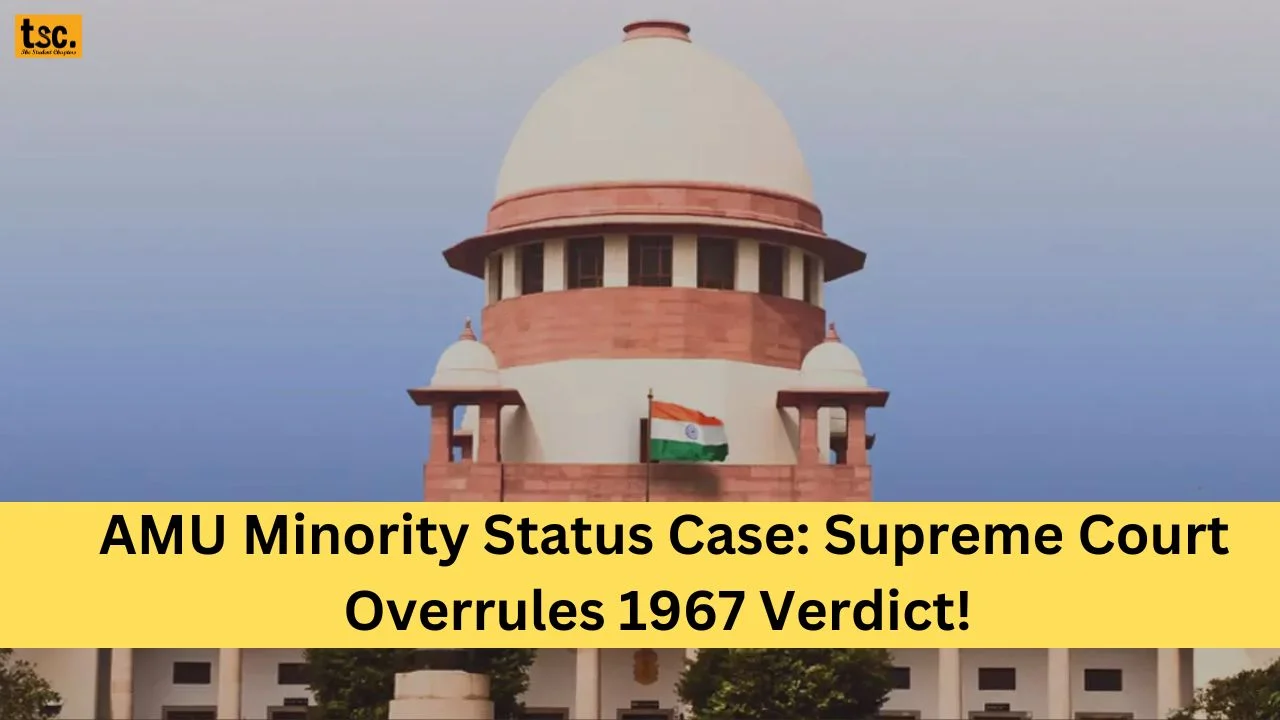AMU Case Overturns 1967 Ruling on Minority Status
Why in the news?
The Supreme Court’s 2024 judgement on Aligarh Muslim University (AMU) overrules the 1967 verdict, affirming its status as a minority institution under Article 30 of the Constitution.
AMU’s Historical and Legal Context:
- The M.A.O. College (1877), founded by Sir Syed Ahmed Khan, evolved into Aligarh Muslim University (AMU), a hub for Muslim education and culture post-1857.
- The 1967 Supreme Court judgement (S. Azeez Basha) denied AMU’s minority status, sparking decades of debate.
- The 2024 AMU case judgement overruled the 1967 verdict, asserting the university’s minority character and aligning with India’s progressive stance on minority rights.
Major Judicial Observations:
- Majority View: Minority institutions have a right to administer, linked to their establishment (Article 30). AMU qualifies as a minority institution.
- Dissenting View: Statutory provisions and governance structure challenge minority claims, but broader criteria for determination were acknowledged.
- Justice D.Y. Chandrachud emphasised no waiver of fundamental rights, following the landmark T.M.A. Pai (2002) and Xaviers (1974) rulings.
- Debate persisted over whether AMU inherited its minority status from M.A.O. College.
Broader Implications for Minority Institutions:
- Minority institutions can also be “institutions of national importance” without sacrificing their rights.
- AMU’s establishment and operation reflect its minority origins, supported by historical documents.
- The court rejected the notion that adopting governance structures similar to secular universities negates minority character.
- The case underscores the constitutional protection of minority rights and the importance of ensuring educational institutions promote inclusion without ghettoization.
Sources Referred:
PIB, The Hindu, Indian Express, Hindustan Times




